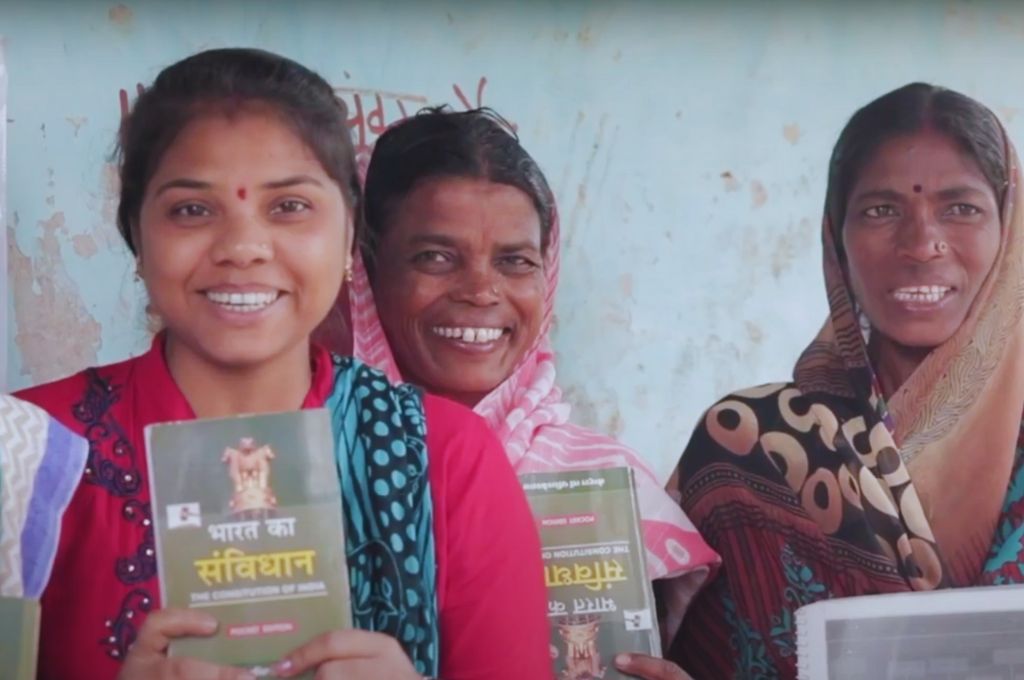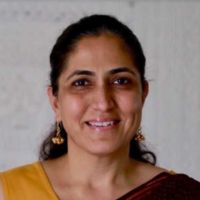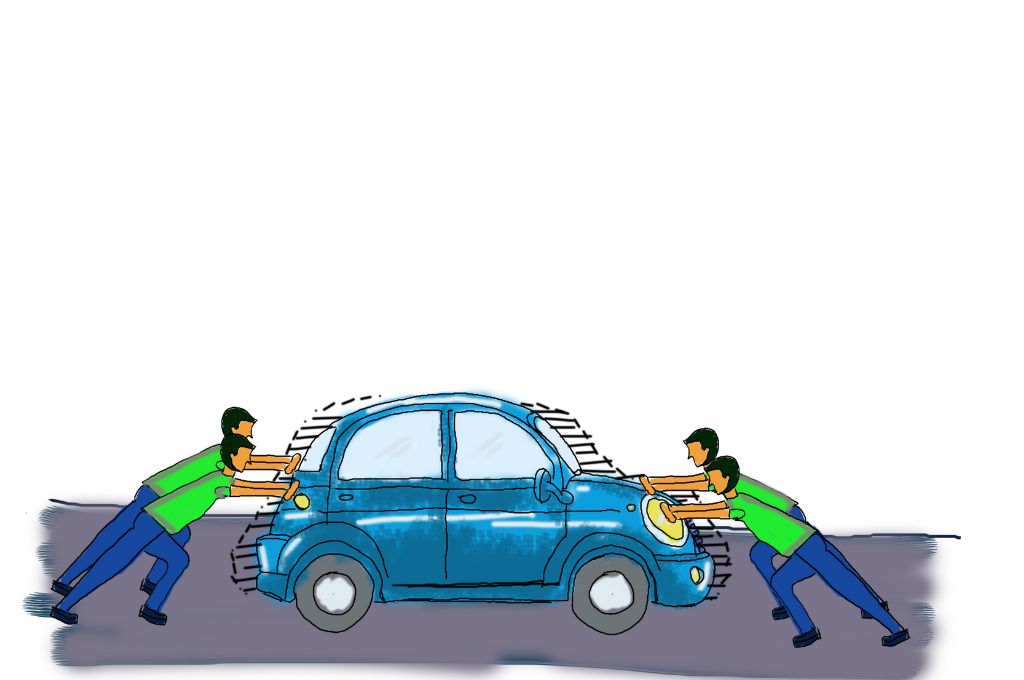In 1949, when India’s Constitution came into being, it articulated a vision of a society that secures and promotes the core human values of equality, fraternity, justice, and liberty among all its diverse citizens. Through its framework of rights and duties, the Constitution outlined how these values would be protected and furthered by the state and citizens, and laid down the fundamental processes we could use as we embarked on our journey as a nation. Since then, time and again, both individuals and institutions have rallied for their rights and effected change based on the values enshrined in the Constitution. Some notable examples are Mohammed Yasin, one of the first citizens to petition the Supreme Court in 1950 to protect his right to livelihood, and Ghulam Mohiudin Sheikh, who filed a Right to Information (RTI) application to find out why many people living in his village in Kashmir were not benefitting from a rural housing scheme. These are two among innumerable citizens who have protested different forms of injustice or put in the time to improve their neighbourhoods.
These active citizens have played a vital role in making our communities better. They are critical for the functioning of a democracy, as they recognise the gap between what should be and what is, and work to bridge this gap using the Constitution as a guide. In this article, we explore what active citizenship looks like in practice and what it means to take action based on constitutional values.
What makes one an active citizen?
Bryony Hoskins, who has worked extensively on active citizenship, loosely defines active citizens as those who engage in a “broad range of activities that promote and sustain democracy”. Unpacking this definition points to two aspects:
1. Active citizens undertake initiatives that strengthen a democracy. Depending on the context, this could include community development, social service, voicing opinions, participating in gram sabhas or city councils, voting, petitioning, campaigning for elections, protesting, and other such endeavours. Active citizens must base these activities on certain values and principles—such as freedom of choice, equal voice and participation, and respect for others and for the law—that are essential for a democracy. In the case of India, these fundamental values are enshrined in our Constitution.
2. Developing active citizenship is not an automatic process—it is learned and practised over time. The process to become an active citizen involves debate and dialogue and recognising and resolving conflicts.
Take the example of Rohini Chhari, a social worker from a small village in Madhya Pradesh. When the public cremation ground in her village did not allow the cremation of a person belonging to a Dalit caste, it sparked intense friction among the different communities residing there. Rohini, who herself belongs to a marginalised community, intervened and demanded action from the sarpanch; he then ensured that the cremation is performed in the public ground.
Rohini, however, did not stop there. She realised that unequal access to the public cremation ground was an ongoing conflict that required a more sustainable solution. Thus, she called for a meeting between communities and facilitated a dialogue. While the concerns and opinions of all sides were discussed, she brought attention to the discrimination that was being practised. Rohini invoked the values of equality, dignity, and fraternity that are enshrined in the Indian Constitution, and also talked about Article 15, which prohibits caste-based discrimination. Further, she informed everyone that caste-based discrimination was an offence under the Scheduled Caste and Scheduled Tribe (Prevention of Atrocities) Act, 1989. These discussions finally led to the decision that the cremation ground would be shared by all communities.
Rohini advocated for community action by linking it to the constitutional values of equality and dignity. She cited legal provisions upholding these values, actively engaged with community members including the sarpanch, and championed citizens’ rights and responsibilities. Through these efforts, she emerged as a vital force for democracy and development in her community.

The role of community-based nonprofits
As facilitators of social change and by virtue of working at the grassroots, community-based nonprofits are critical for developing active citizenship. They work closely with citizens, often with those from marginalised communities, to resolve issues that they face every day—discrimination, governance failures, and problems of inaccessibility, inequity, and injustice. By their very nature, community-based nonprofits exist to secure the values embedded in our Constitution.
By their very nature, community-based nonprofits exist to secure the values embedded in our Constitution.
At We, The People Abhiyan, we have been working with several nonprofits to enable them to incorporate an active citizenship lens in their work. One of these is Synergy Sansthan, an organisation that initially advocated for the rights of Adivasi youth in Harda, Madhya Pradesh. Their leadership team underwent immersive training to deepen their understanding of the Constitution and active citizenship. The process helped them realise that young people, across various communities, may be subjected to several levels of injustice. Therefore, focusing only on Adivasi youth would not factor in the intersectional injustices that, say, may be common to an Adivasi youth and a young person belonging to a scheduled caste. By applying a constitutional values lens to understand the root causes, young people from different communities can come together and examine structural inequality and discrimination from a wider ambit. Thus, Synergy Sansthan’s emphasis on active citizenship in their programmes expanded to address the concerns of all young people in the region.
PRADAN, a nonprofit organisation dedicated to enhancing rural women’s livelihoods, has recognised the necessity to empower women leaders who work with self-help groups (SHGs) with tools for active citizenship. We conducted several capacity-building programmes with them to improve women leaders’ understanding of constitutional values, rights, and laws. Before the training sessions, although the women met once a week to identify and discuss community issues, they saw PRADAN as the channel through which these issues would be addressed. The key difference after the training was that the women started seeing themselves as capable of resolving some of these issues—for example, widow pensions and access to rations and drinking water, which they also came to view as rights—by connecting with the state authorities. These leaders gained confidence from actively engaging with local self-government institutions and participating assertively in gram sabhas, which led to them influencing development in their communities. Increasingly, there is active discussion within SHGs on how members themselves practise these constitutional values and how they can do more to address the difficulties faced by the most marginalised among them.
Challenges nonprofits face in incorporating active citizenship in their work
From the above examples, it is evident that by incorporating an active citizenship lens to their work, nonprofits can enable people to take ownership of the vital role they must play in a democracy, participate in governance processes, and take steps to solve problems using the powerful values and framework defined by our Constitution. However, this may not be possible for all nonprofits to achieve. Here’s why:
1. There is a need to resolve urgent issues that communities face in terms of health, education, and livelihoods. In many cases, such as when the government does not respond or its response is inadequate, nonprofits become the sole recourse for communities in fulfilling their requirements. Organisations may not prioritise focusing on underlying values such as equality and justice, because tackling immediate challenges can be a lifelong process in itself.
2. Limited resources are another reason why nonprofits tend to concentrate on immediate issues at hand and may not be able to give attention to broader, longer-term needs. A sharp focus on fulfilling particular needs quickly and efficiently may also lead to viewing communities as ‘beneficiaries’ of services, rather than as citizens who rightfully deserve access to quality services from the state. Therefore, nonprofits tend to build capacities and provide training directly related to the issues they are working on, rather than prioritising the development of active citizenship through their programmes.
3. Getting engaged in long-term strategic issues can sometimes become a challenge for nonprofits as they find it difficult to secure funding partners for such endeavours.
Strategies for nonprofits to promote active citizenship
Based on our work with several nonprofits, here are some simple steps we have identified that nonprofits can take to start incorporating active citizenship in their work with communities:
1. Display copies of the Preamble of the Indian Constitution in the head office, field offices, and community centres, preferably alongside the vision and values statements of the organisation. The Preamble can serve as a tool to facilitate discussions on different constitutional values and to examine the connections between the vision and values of the nation and those of the organisation. This offers organisation members and the communities they work with a point of reference that they can look to when handling any issues of inequality, injustice, or oppression. Such an approach ensures that, even while dealing with the immediate issue at hand, they are consistently mindful of the root cause of the problem.
2. Use copies of the Preamble in community meetings to discuss the roles and responsibilities of citizens. Pose questions such as: What kind of society are we hoping to build? What is expected of each of us and of state authorities? What are the values that should guide both citizens and the state? This can help them realise their own stake, articulate a common vision, and take ownership of working towards it.
3. Encourage community members to actively participate in gram sabha and ward-level meetings, as well as other platforms of local self-government. These assemblies serve as forums for local governance where citizens can actively engage in decision-making processes and connect the concepts of active citizenship taught in workshops with practice. By participating in these conversations, people are empowered and contribute to shaping policies and initiatives that directly impact their communities.
4. Incorporate foundational training on constitutional values and framework (including rights, directive principles, the role of the state, and the law) into the internal team’s training processes. This will help embed a constitutional values lens into any programme the team undertakes and approaches.
As the Indian Constitution enters its 75th year, it is imperative for citizens to embrace their roles as vital forces of development. Community-based nonprofits should acknowledge the valuable role they play in nurturing citizens on this transformative journey.
—
Know more
- Learn more about how children perceive the idea of citizenship in an equitable country.
- Read this article to learn about the decline of the country’s democratic values.
- Know more about people-led initiatives that have furthered constitutional literacy.
Do more
- Join the national campaign Har Dil Mein Samvidhan.





